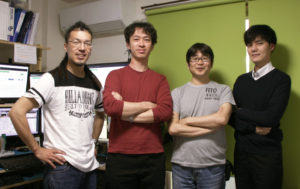Suzuki Every Van EV Trials Start
It is easy sometimes to forget about manufacturers like Suzuki. They don’t seem to be in the big league (like Toyota), nor do they have a charismatic CEO (like Mr. Ghosn of Nissan). Having said that, these “minnows” can sometimes surprise. After all, Mitsubishi came out of nowhere with their i-MiEV, and here comes Suzuki with an electric version of their kei (mini) van, the Every. Suzuki may not be a big player outside of Japan. but in its home market, it is frequently numero uno due to sales of minicars called kei cars.
While vans like the Every may seem rather quaint to western, and especially North American, eyes, these smaller vans are actually a stalwart of Japanese business and agricultural users. In ICE form, their small engines make them very fuel efficient, and their size means they can navigate country roads and tight city streets with equal ease.
Since Mitsubishi launched their Minicab-MiEV earlier this year, it did not take too much imagination from Suzuki to realize that they needed to make sure they were in the electric vehicle game also. Suzuki has created 13 of these EV Every vans which will be leant out to Suzuki dealerships around Japan, starting with those closest to Suzuki’s home in Hamamatsu, central Japan. This will allow Suzuki to gather real-world driving data for their next-generation vehicles.
EV Every recharging (right) with Swift Range Extender (left)
The EV Every test vehicles are fitted with high-capacity compact Lithium Ion batteries which can be fully charged in 5 hours using a 200V outlet, giving the EV Every a maximum range of 100 kilometers. Although this may not sound like a lot, as I mentioned in an earlier post about the Minicab-iMiEV, this is more than enough for the typical delivery vehicle in Japan as it jets from street to street. The weight has increased 200KG over the base ICE model, but the cargo capacity remains the same at 250KG. There is no indication as to how the range might be affected if run with a full cargo. Presumably, this would be one thing they will want to investigate with this real world drive testing.
Although the EV Every is not slated for production, the data gleaned from these vehicles is likely to prove useful when Suzuki opens their Next Generation Environmental Vehicle technology development center in August 2016. To be honest, I hope they plan on moving forward before then, otherwise early starters like Mitsubishi and Nissan are likely to be too far ahead to catch by then.
Source: Chunichi Shinbun (Japanese-language)



